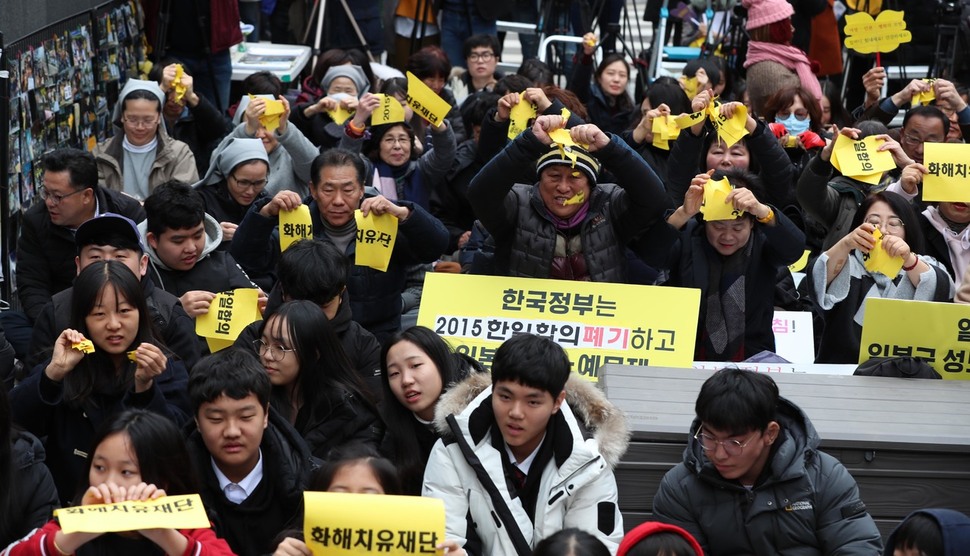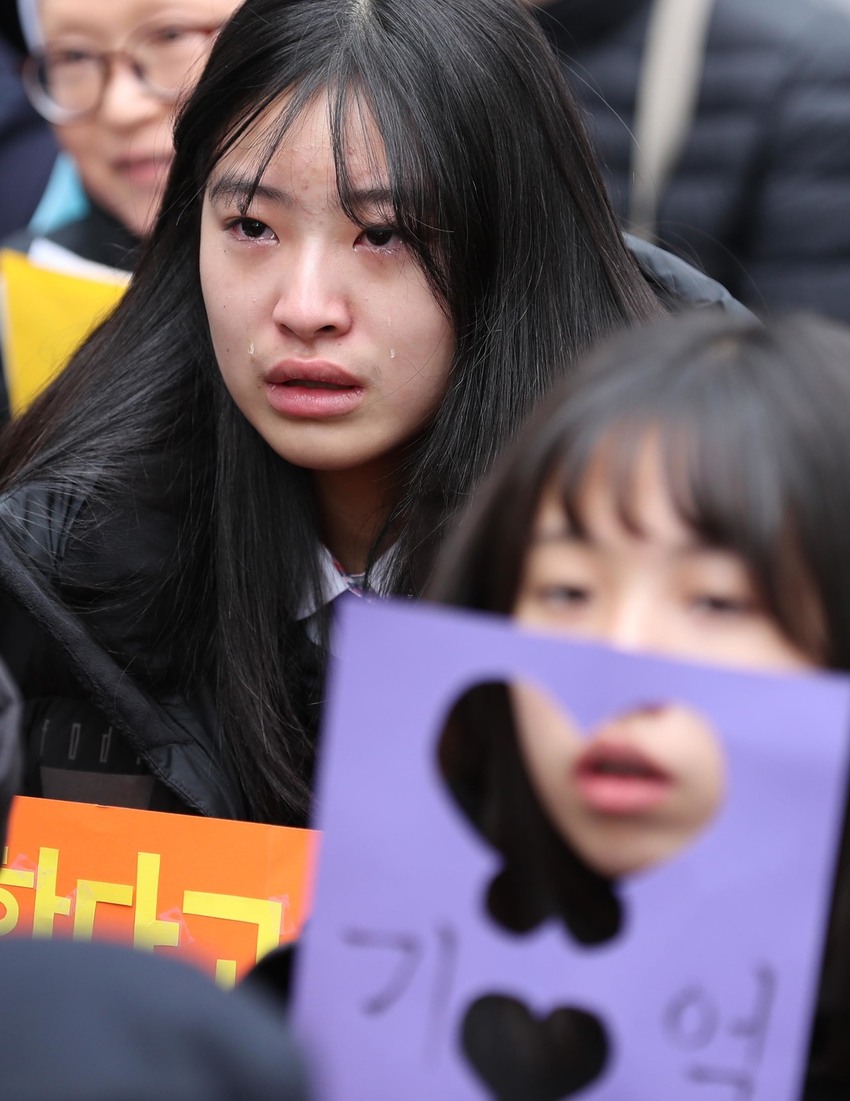 |
|
Civic demonstrators gather near the comfort women memorial in front of the Japanese embassy on Nov. 21, the day the South Korean government announced the dissolution of the Reconciliation and Healing Foundation. The demonstrators, who are part of the weekly Wednesday protests on the comfort women issue, are seen ripping apart sheets of paper with “Reconciliation and Healing Foundation” written on them. (Kang Chang-kwang, staff photographer)
|
Dissolution of foundation does not necessarily nullify comfort women agreement
On Nov. 21, South Korea’s Ministry of Gender Equality and Family (MOGEF) officially announced that it will be shutting down the Reconciliation and Healing Foundation, which is a central component of the comfort women agreement reached by the governments of South Korea and Japan during the administration of former South Korean President Park Geun-hye. The curtains will close on the foundation just 28 months after its establishment in July 2016 amid criticism that it didn’t receive the consent of the comfort women and that the Japanese government didn’t offer a sincere apology. In its announcement, the government didn’t request that the comfort women agreement be scrapped or renegotiated. The central terms of the comfort women agreement, which the two governments concluded on Dec. 28, 2015, were a sincere apology by Japan and the establishment of the Reconciliation and Healing Foundation, to which Japan donated 1 billion yen (US$8.85 million) that was supposed to be used in programs to restore the reputation and dignity of the former comfort women and heal their emotional wounds. But the sincerity of that apology was soon erased when Japanese Prime Minister Shinzo Abe said in Oct. 2016 that he didn’t have the “slightest intention“ of writing a letter of apology to the comfort women. Amid these developments, the foundation disbursed a total of 4.4 billion won (US$3.9 million) of the 1 billion yen donated by Japan to 34 of the 47 surviving comfort women and to the family members of 58 of the 199 who are deceased. In Dec. 2017, a review conducted by the administration of President Moon Jae-in found problems with how the agreement had been reached. The foundation’s private-sector directors resigned en masse at the end of last year, rendering the foundation essentially nonfunctional. The surviving comfort women demanded the dissolution of the foundation, and during his summit with Abe in New York on Sept. 25, President Moon basically notified Japan of his plan to shut down the foundation. “The Reconciliation and Healing Foundation is unable to function normally because of the opposition of the public and the former comfort women, which will lead to its demise,” Moon said at the time. Now that the foundation’s official dissolution process has begun, it will go down as another “failed solution,” along with the Asian Women’s Fund, which Japan set up using donations from the public in the 1990s.
 |
|
A student sheds tears after hearing the words of surviving comfort woman Kim Bok-dong, who is currently battling cancer, in front of the Japanese embassy in Seoul on Nov. 21, the day the South Korean government announced the dissolution of the Reconciliation and Healing Foundation. (Kang Chang-kwang, staff photographer)
|







